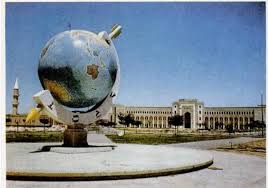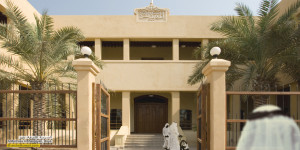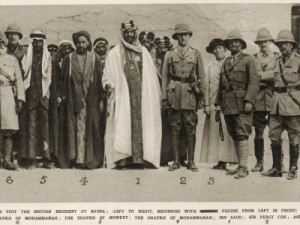The history of our Middle East (and Gulf) region is being rewritten again these days. The genesis and sources of Jihadism and terrorism, even (Sunni) Salafist terrorism, are being rewritten by well-paid Western Public Relations firms, Arab lobbyists, and flattered American journalists with access to royal palaces.
I came across an example last week: a recent N Y Times piece by Thomas Friedman. He has become quite predictable, and also quite irrelevant, about the MENA region. He rarely writes or expresses anything original anymore about the Middle East. It has been years since we have read his dialogues with his various insightful Arab airport taxi drivers: Abdu (in Egypt), Abed (in Lebanon), Abul Abed (in Jordan/Palestine), etc. But he does have a large audience among certain liberal and non-liberal people of influence in the USA.
He is now falling closely behind Donald Trump and echoes the anti-Iran rant he ratcheted across the Persian Gulf during the odd Riyadh Summit in May 2017.
In his recent piece in the New York Times Friedman claims that all social and sectarian restrictions and proxy wars in the Middle East were a result of the Iranian Revolution of 1979 and the theocratic regime it created. He also directly ties the phenomenon of world wide (Sunni) Salafi Jihadi terrorism to that Revolution.
In fact the Iranian revolution and the emerging Shi’a theocracy did galvanize the rival Salafist Wahhabis, as did the early promises of the failed Baathist invasion of southwestern Iran. But he conveniently ignores the decades-long Wahhabi subversion of various Islamic communities with money and extremist ideology. A subversion that preceded the Iranian Revolution and its theocracy, and preceded the first Jihadist-Socialist war in Afghanistan by decades.
He claims that Saudi Arabia stopped having movie (cinema) theaters after 1979 (Prince Bin Salman must have told him that). I got news for Friedman: Saudi Arabia has never allowed movie theaters in its cities and towns in the Wahhabi era. That was a continued part of the power-sharing deal between the Al Saudi family and the Wahhabi clerics (Wahhabism opposed recreating images or films of people). In Iran movie theaters and the film industry continued to thrive even after 1979. In fact the films won several Oscars under the restrictive theocratic Islamic regime.
Saudi Arabia first tried to introduce TV in the early 1960’s. At that time riots broke out in the streets, blood was shed: long before the Iranian Revolution. Among the casualties was one dead senior prince of the royal family. That dead prince’s son took revenge in 1975, when he shot his uncle, King Faisal, dead. Also years before the Iranian Revolution.
Women were never allowed to drive in Saudi Arabia, not ever, even before 1979, even as Iranian women were allowed to continue driving and riding under the Islamic regime in Iran. Including driving taxis and large trucks in some cases. Women still do not drive in Saudi Arabia, but they have been promised.
Friedman mentions the Afghan War after 1979. In fact the first Afghan War, pitting Afghan and Arab Jihadis mainly of the Wahhabi faith against the secular Socialists, was most influential in creating the situation we now face. Al Qaeda and Taliban and even ISIS were all the results of that Afghan war. In Afghanistan, Saudi money, Saudi Wahhabi ideology, and American weapons (under Reagan) created the worldwide Jihadi movement we now suffer. When all the Salafi/Wahabi went back home from Afghanistan and aimed at new targets at home and in the West. We might some day say the same about the foreign-instigated wars in Syria (and Iraq). In fact we are already seeing the consequences.
Friedman of course is buying and propagating the current Saudi narrative about the roots of Arab Salafi/Wahhabi terrorism. Oddly, only a few years ago he was still blaming the Saudi system for the same phenomenon of terrorism. That Saudi Crown Prince must have been very convincing, or it could be just the easy and flattering access.
Then Friedman went sycophant -ic (access can do that to one): he called the Saudi inner-family struggle “Real Arab Spring”…..
Cheers
M Haider Ghuloum





